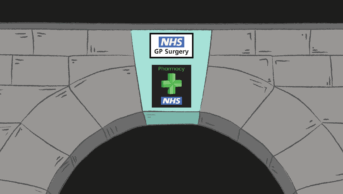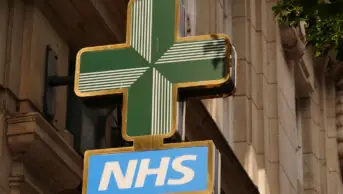
Shutterstock.com
The Proprietary Association of Great Britain (PAGB) has published a series of case studies aimed to showcase examples of best practice from integrated care systems (ICSs) that have successfully implemented initiatives to empower their local populations to self-care for minor conditions.
‘Supporting self-care: an ICS best practice compendium‘ — published on 20 November 2024 by the UK trade association, which represents manufacturers of branded over-the-counter (OTC) medicines, medical devices and food supplements — provides advice to help in the design and implementation of self-care initiatives to reduce the burden of minor ailments and self-treatable conditions on ICSs.
The compendium includes a case study on a self-care medicines toolkit to support healthcare professionals in advising patients on accessing OTC medicines from a community pharmacy.
It also includes case studies on a children’s health app, a formulary of digital health tools and a programme to improve awareness of digital tools, such as the NHS App and NHS 111.
PAGB noted that the initiatives selected are aimed to make better use of community pharmacy, which includes using Pharmacy First, widening access to OTC medicines and upskilling primary care staff.
Commenting on the compendium, Mark Burdon, a community pharmacist and adviser to PAGB, said: “The NHS England delivery plan recognises the importance of community pharmacy and widening access to OTC medicines. The ICS compendium provides frameworks of thinking as to how community pharmacies could be better involved, for example, in contributing to digital health apps, where community pharmacy services could be included with a focus on self-care.
“Pharmacists are professional experts in self-care and the use of OTC medicines. They are highly accessible on the high street and can provide recommendations on an increasing range of OTC medicines. Pharmacists can bring huge benefits to local healthcare systems with effective care for self-treatable conditions.”
Michelle Riddalls, chief executive of PAGB, added: “Self-care, defined in this compendium as actions taken to treat minor and self-treatable conditions, with appropriate use of OTC medicines, could save the resources of a significantly stretched NHS.
“Each year, at least 25 million GP appointments and 5 million A&E appointments are used for self-treatable conditions, costing the NHS £1.7bn a year. If these conditions were manged by self-care, these healthcare services and resources could be reallocated to parts of the NHS that need them most.
“Considerable progress has been made since the publication of the NHS England delivery plan for recovering access to primary care in setting up new structures that enable increased and enhanced access to self-care, but disparities in services exist at a local level. The ICS compendium, with its case studies, provides best practice examples as to how those gaps might be filled.”
Data published by Community Pharmacy England in October 2024 show that community pharmacies provided almost 38 million unpaid consultations over a year that otherwise would have resulted in patients visiting their GP.
Analysis of Pharmacy First claims data by The Pharmaceutical Journal showed that between February 2024 and June 2024, community pharmacies made claims for more than 750,000 consultations under the service.
However, the analysis also revealed regional variations in the volume of consultations conducted during the first five months of implementation of the service.


